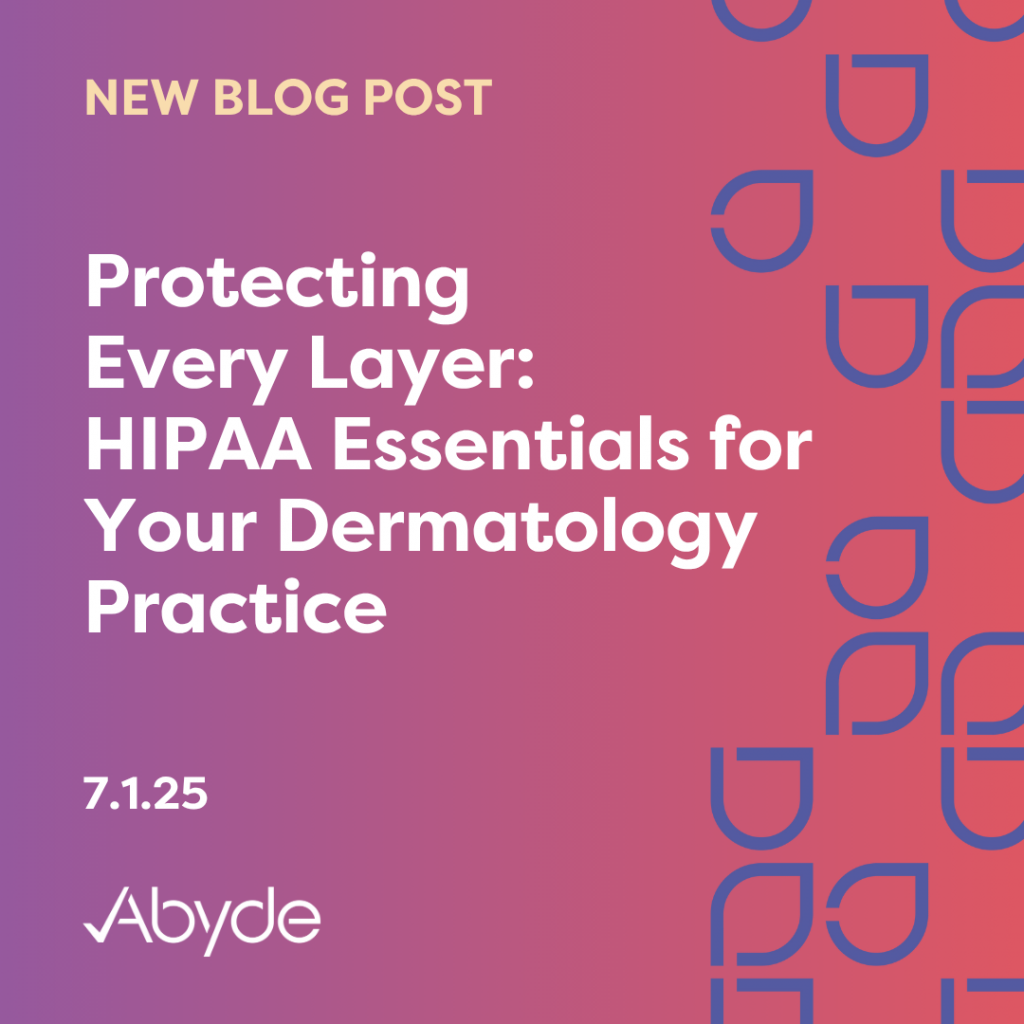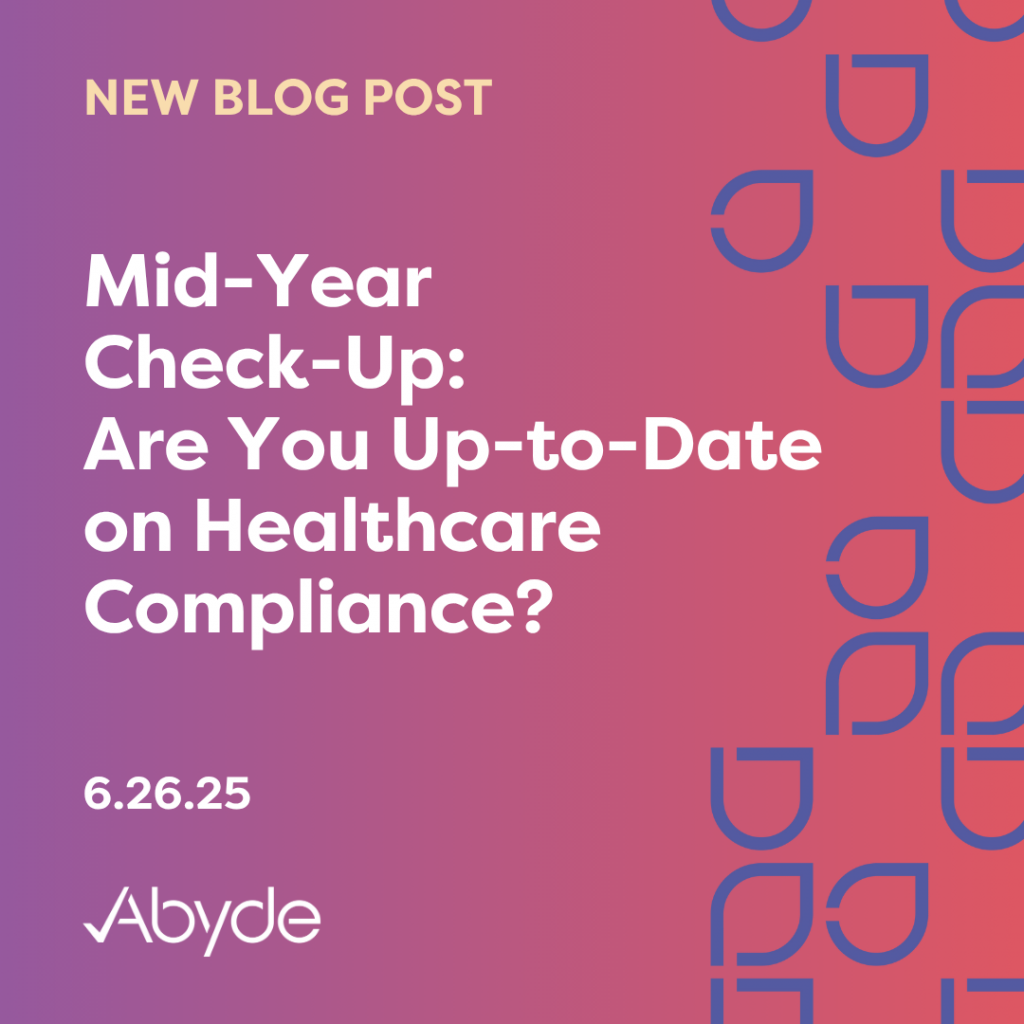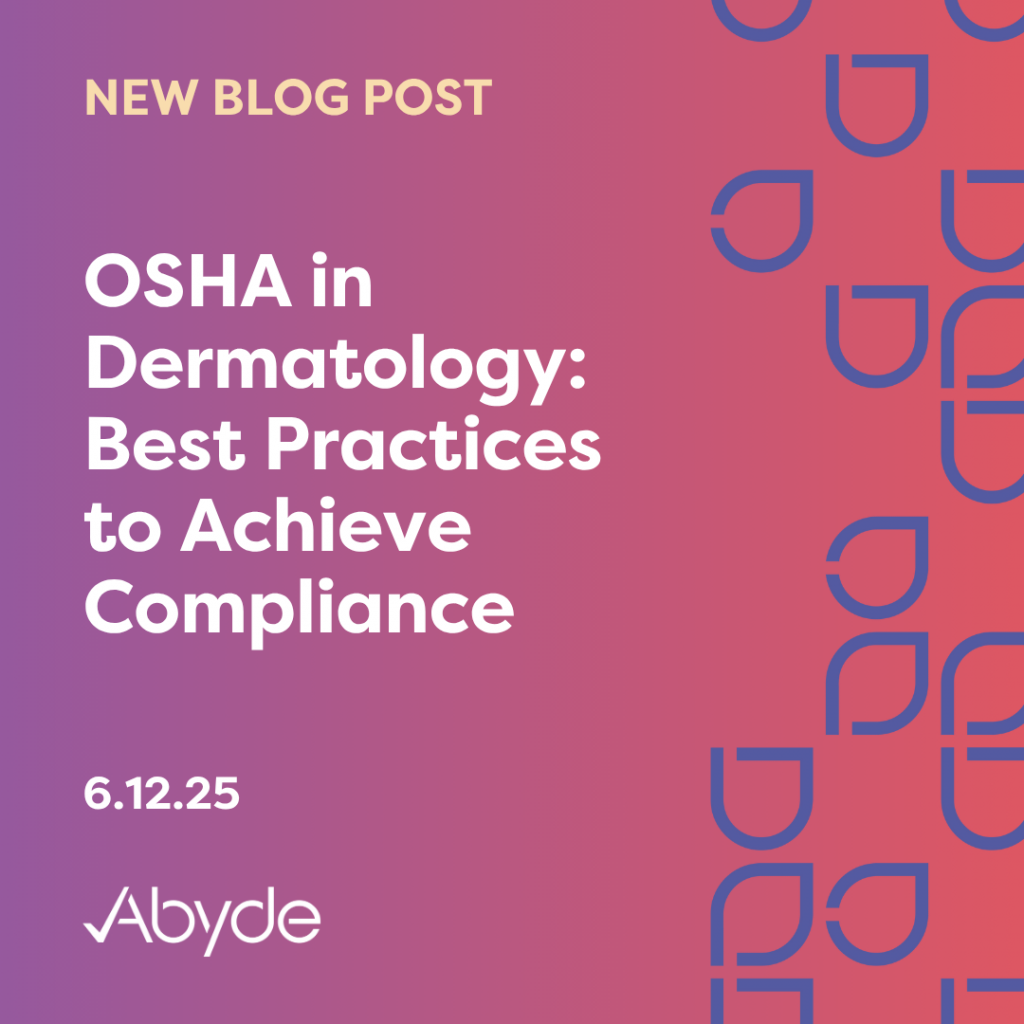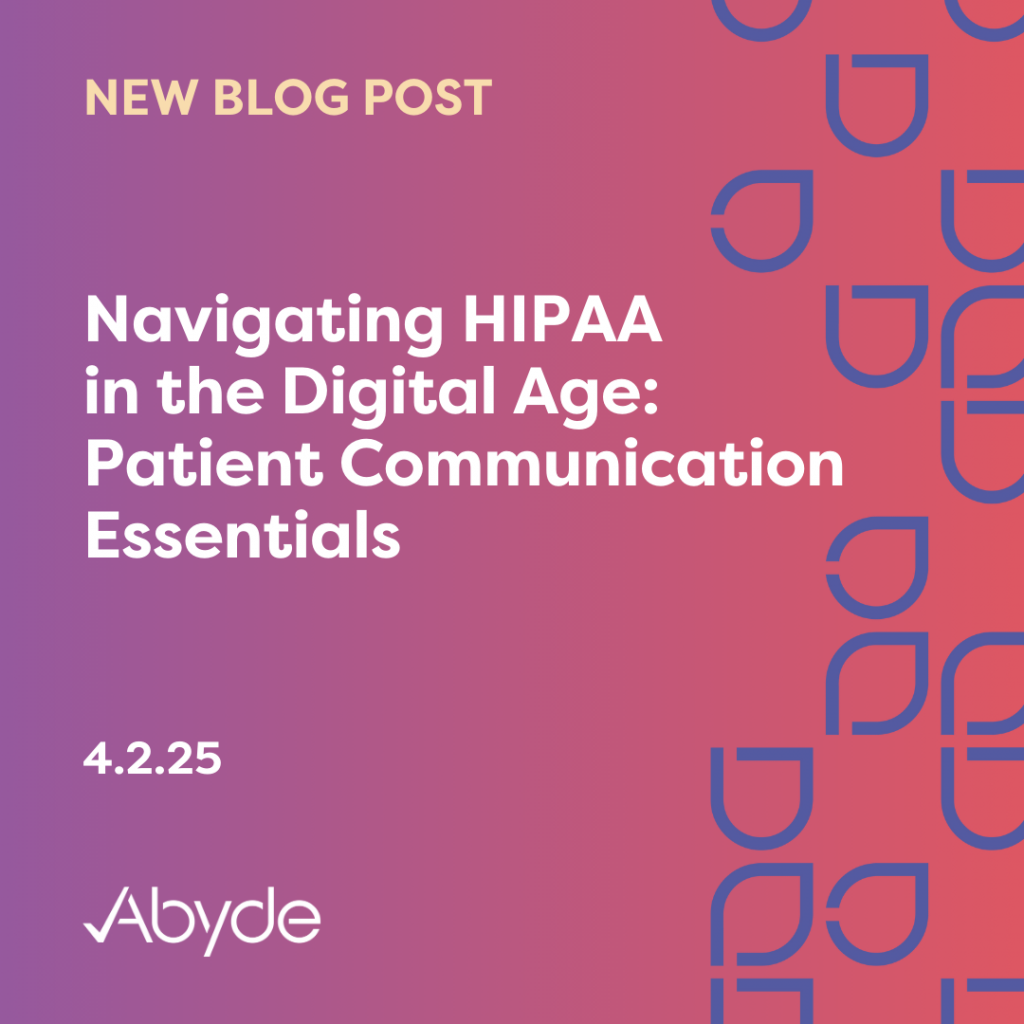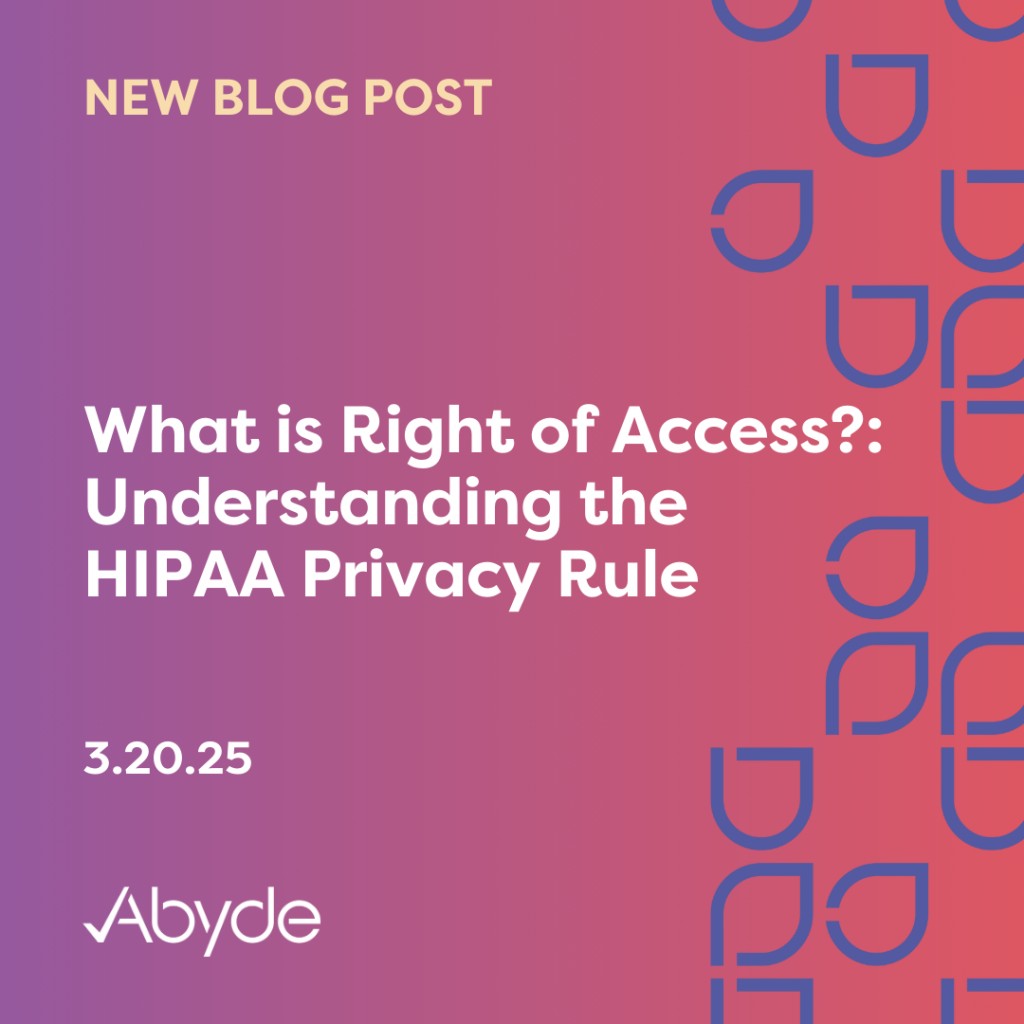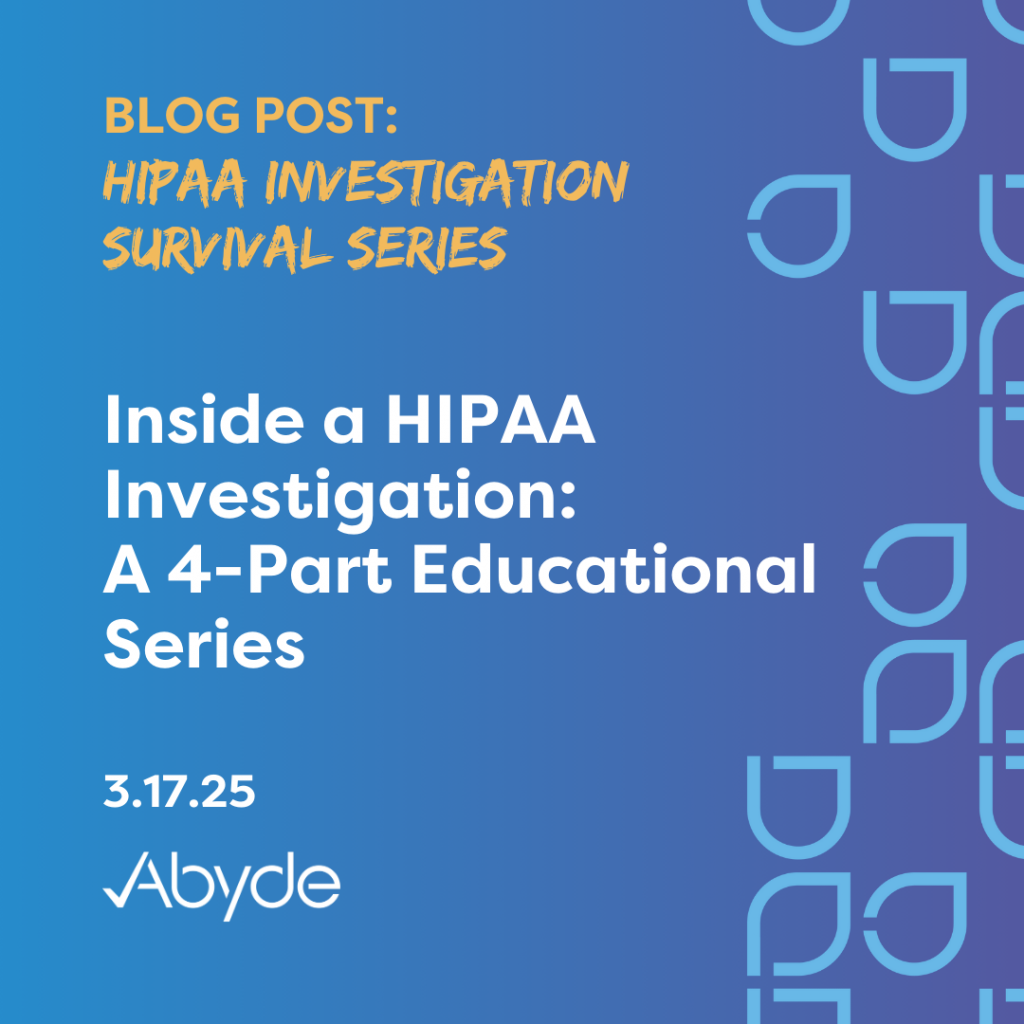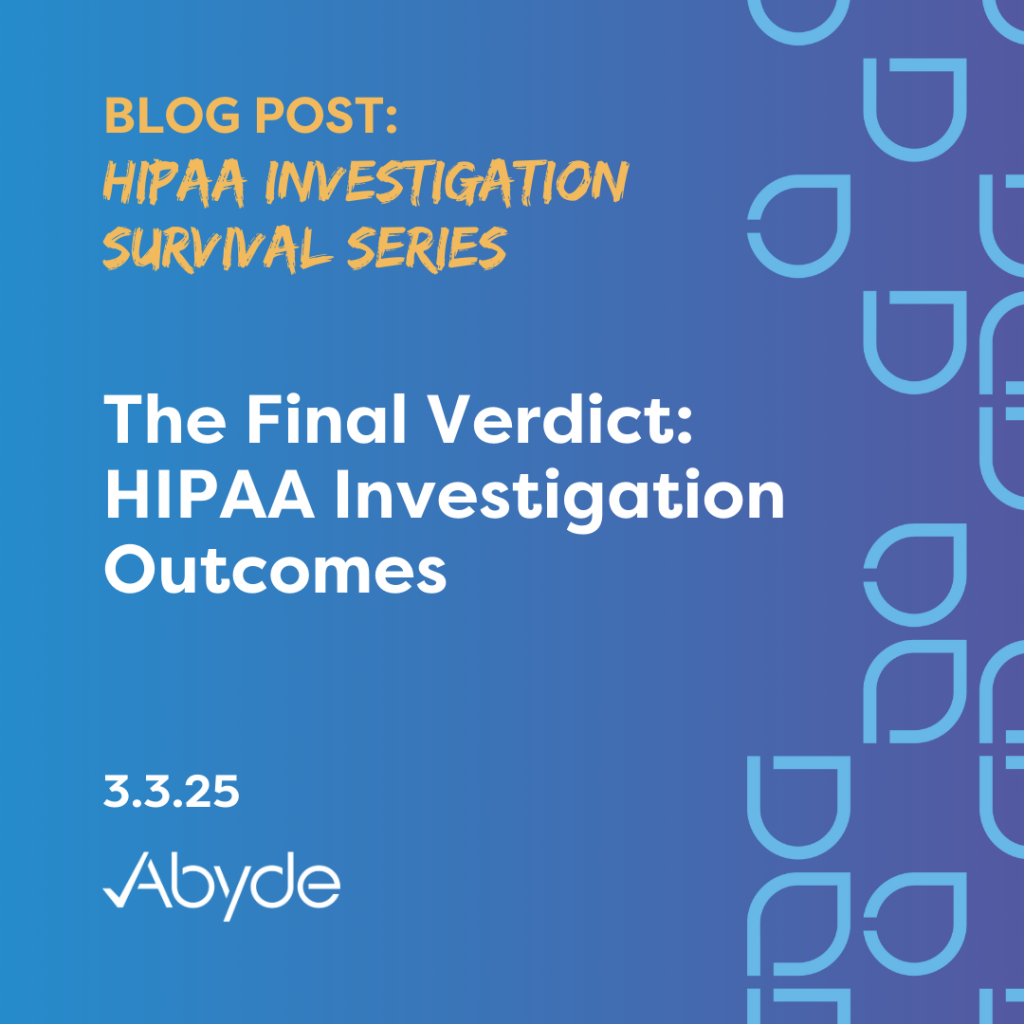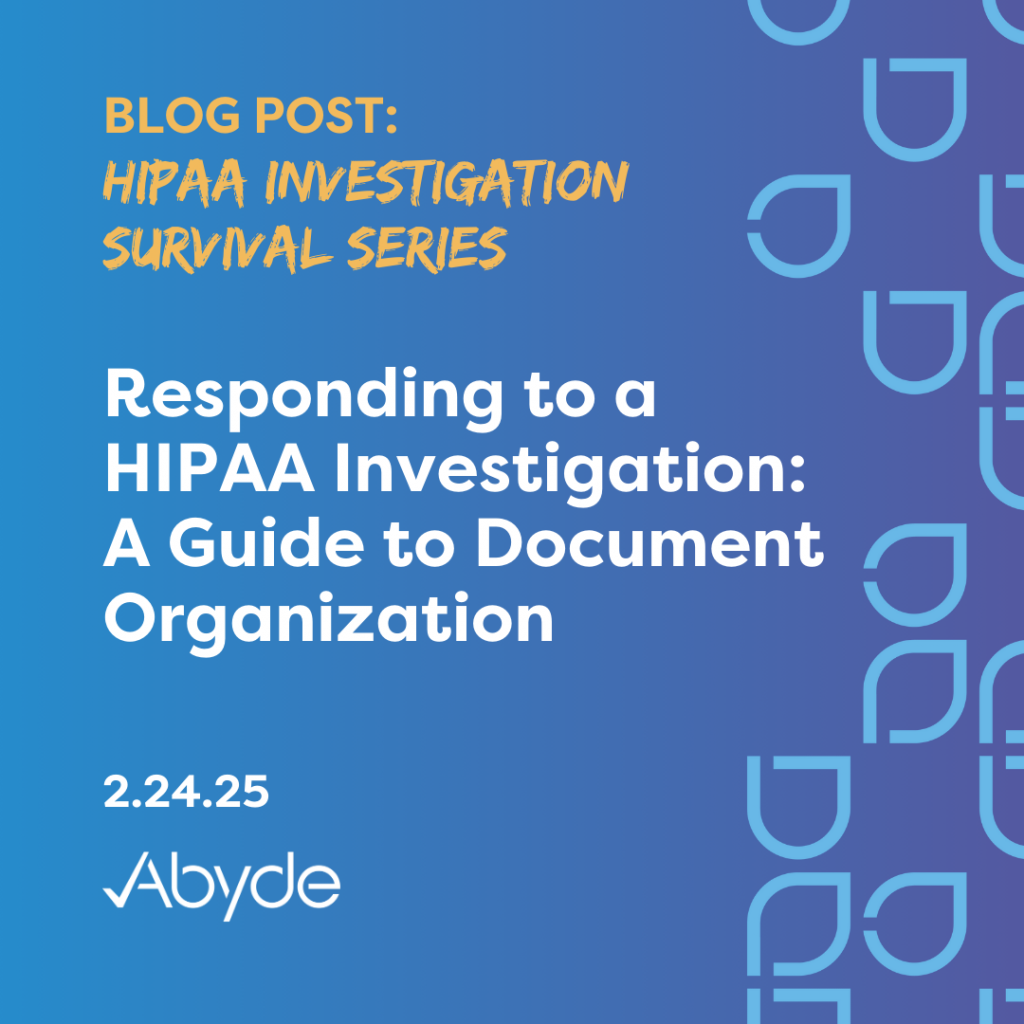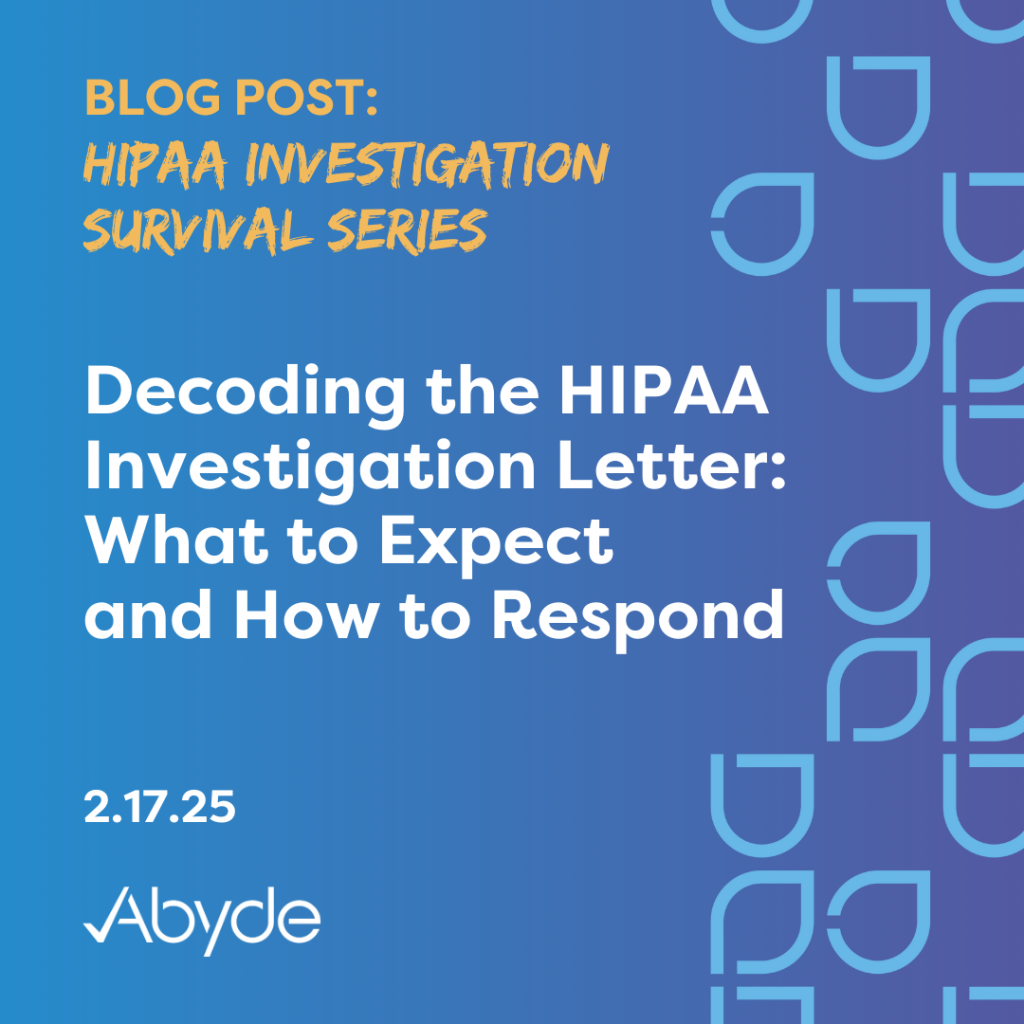July 1, 2025 HIPAA violations are not skin-deep. Dermatology practices, like all healthcare practices, are subject to HIPAA legislation. Common HIPAA violations erode reputation and patient trust, potentially costing your practice significant legal fees and fines. Dermatology practices have unique data, like photos of skin ailments and reports of skin biopsies, which must be securely handled. Sharing a picture of an abnormal mole without proper documentation, even if it looks harmless, is a HIPAA violation. Why? This is because the image includes identifiable health information about your patient. The good news? Frequent HIPAA pitfalls can easily be prevented with the proper safeguards and education. Being aware and implementing the right proactive safeguards secures your practice. Social Media 101 Before-and-after patient photos can be a powerful marketing tool on social media, but mishandling them could attract unwanted attention from the Office for Civil Rights (OCR). It’s totally normal to be proud of the great results you achieve for your patients. However, if you plan to share how your treatment helped a patient publicly, you must have that patient sign a media consent form. This form explicitly grants permission to share their healthcare procedures or results online. Beyond that, your practice must have a well-defined multimedia policy outlining how social media is handled. This ensures your entire staff is equipped and aware of their responsibilities regarding sharing information online, keeping everyone compliant, and protecting patient privacy. It’s also important to regulate your dermatology staff’s communication with patients on social media. While a patient may leave a positive review about how a chemical peel treatment made them look younger, you cannot confirm or deny whether that patient visited your practice. If you want to use a favorable review in your social media marketing, make sure the patient has signed the media consent form. Even a negative review can lead to a HIPAA violation if you’re not careful. While it’s tempting to defend your practice publicly, the cost of a violation far exceeds the initial frustration. For instance, one practice faced a $10,000 fine for disclosing Protected Health Information (PHI) on Yelp. The right move would have been to move the conversation offline and communicate with the patient privately through a secure channel. Staying Ahead: Security Risk Analysis One of the most common fines is missing a vital piece of proactive compliance. The Security Risk Analysis (SRA) is a thorough assessment of all the safeguards your practice has in place to secure PHI. The minimum annual SRA must be completed before and after a HIPAA breach, showcasing your practice is aware of vulnerabilities and documenting how they are addressed. This isn’t an isolated issue; it’s a widespread compliance gap, with only 14% of healthcare practices able to produce a compliant SRA during random audits. The recent case of a dermatology organization that faced an investigation after a substantial ransomware breach. The incomplete SRA discovered during the investigation led to a hefty $250,000 fine for the practice. It’s a common misconception that fines are solely a consequence of ransomware attacks. However, the true underlying reason for a fine is the failure to implement appropriate preventative safeguards. While ransomware attacks and cybercrimes can certainly occur despite even the most robust safeguards, a practice’s preventative and reactive response and ability to mitigate risk swiftly determine whether a fine is levied. Improper Paper Trails The entire lifecycle of PHI, from generation to deletion, needs to be handled securely. This includes properly shredding and disposing of records. Any image of a patient’s skin, old samples, etc., must be disposed of securely. First, records need to be kept for at least six years, but once disposed of, they cannot be traced to patients and must be destroyed entirely. Simply putting records in the trash isn’t going to cut it. In fact, Business Associates can handle data destruction for your practice. A dermatology practice was fined for improper disposal. Empty specimen containers, with PHI on the label, such as patient names, dates of birth, and more, were thrown in unsecured trash. After discovering that this disposal was typical for the dermatology organization for years, the practice was fined over $300,000. How to Avoid Common Dermatology HIPAA Violations The right HIPAA compliance program can avoid these common missteps. Proactive compliance, including thorough training and a maintained SRA, is key to the success of your dermatology practice. While handling your practice’s compliance program might feel overwhelming, compliance solutions can streamline this process. Intelligent software can easily pinpoint and address common violations in a centralized compliance hub. By maintaining control and proactively addressing compliance gaps, your practice can achieve peace of mind. Meet with a compliance expert today to learn more about simplifying HIPAA compliance for your dermatology practice.
Mid-Year Check-Up: Are You Up-to-Date on Healthcare Compliance?
June 26, 2025 Healthcare compliance is an ever-evolving landscape, with new initiatives and updates announced to better protect patients and staff. As the year progresses to its midpoint, it’s crucial to seize this opportunity to stay informed on the latest developments in the field. HIPAA and OSHA both have new significant updates that will directly impact practices. New HIPAA Security Rule Legislation In December 2024, the Office for Civil Rights (OCR) released proposed updates to the HIPAA Security Rule. One of the pillars of the Health Information Portability and Accountability Act, the Security Rule focuses on the safeguards that must be deployed to keep Protected Health Information (PHI) secure. In response to the rise of large breach ransomware attacks, which have nearly tripled in the last several years, the OCR is increasing cybersecurity requirements when handling patient PHI. For instance, under this new legislation, some new requirements include an asset log, network segmentation, and multi-factor authentication. These requirements are all heightened precautions when protecting patient data. Under this new legislation, the vendors your practice works with will also experience increased scrutiny. For example, under this proposed rule, Business Associates (BAs) now must have their compliance practices verified by a cybersecurity expert annually. BAs must also alert Covered Entities within 24 hours after a breach with a contingency plan. These soon-to-be added responsibilities demonstrate the vital role BAs play in protecting patients. The comment period for these updates wrapped up in March, and the OCR is reviewing all 4,000 comments before a final rule is announced. Workplace Violence Prevention Legislation When healthcare workers are five times as likely to experience workplace violence, federal legislation is soon to follow. While Workplace Violence Prevention currently falls under the General Duty Clause of OSHA, or the basic requirement of providing a safe workplace for employees, state-level legislation focused on this continues to go into effect. State legislation regarding this vastly differs. Nearly every state has heightened charges for attacking a healthcare worker, being classified as a felony rather than a misdemeanor. Still, now many are requiring specialized training and reporting requirements specifically addressing violence in healthcare workplaces. For example, California, Texas, and Virginia all have comprehensive healthcare workplace violence plans. California even requires near misses and threats to be logged for the state. While federal legislation has not been released yet, a Notice of Proposed Rulemaking (NPRM) will likely be announced this year. HIPAA Audit Program & Risk Analysis Initiative The OCR has reintroduced the HIPAA Audit Program, randomly selecting HIPAA-regulated entities and reviewing their current HIPAA programs. The last time this program was in effect was in 2017. The last round of audits found that 86% of Covered Entities could not produce a compliant Security Risk Analysis (SRA) when prompted by the OCR. The SRA is a thorough assessment of the safeguards and routines currently in place to secure PHI. Practices frequently overlook the Security Risk Analysis (SRA), yet it’s a primary defense, proactively addressing concerns. In fact, the OCR’s October 2024 Risk Analysis Initiative specifically targets practices that fail to complete an SRA, and this initiative has already resulted in nearly a million dollars in fines. Right of Access Fines Improper patient records release continue to be a common pitfall for practices. Records must be provided to patients within 30 days of a request. With over 50 enforcements of the Right of Access Initiative, millions of dollars have been paid by practices. This easily preventable fine highlights the significant impact of patient complaints (the leading cause for investigations) and the OCR’s diligence in addressing Right of Access violations. Getting Prepared for the Rest of the Year While it feels like new initiatives are frequently being announced by the OCR, it is your practice’s responsibility to implement new updates. With the right HIPAA compliance program, smart software can ensure your practice will always be prepared, with new legislation instantly updating in the software. To learn more about what’s next in HIPAA, watch our latest webinar regarding current events in HIPAA here.
OSHA in Dermatology: Best Practices to Achieve Compliance
June 12, 2025 While working in a dermatology office might have you focused on taking care of your patients’ skin, your health should be the first priority. It’s easy to incorrectly assume a dermatology office is a relatively “safe” healthcare environment. After all, we’re not typically dealing with the same acute emergencies as an ER. Dermatology presents many challenges when working with patients, such as lasers, sharp instruments, chemicals, potential exposure to bloodborne pathogens, and more. With these unique challenges, your practice must be aware of the safeguards the Occupational Safety and Health Administration (OSHA) requires. More than Skin Deep: Facility Risk Assessment An annual Facility Risk Assessment (FRA) is the foundation of your OSHA compliance program. The FRA is a thorough assessment of the healthcare hazards your practice might face. This assessment spans from your staff is trained, to unique equipment you might use, how situations are prevented, and even how management handles workplace safety. Since this is an annual requirement, this assessment must be kept current. If your practice introduces anything new that might heighten risk, this needs to be documented. For instance, if your practice begins offering laser treatments, this must be mentioned in the FRA and also staff must be trained on how to use it safely. By reviewing and addressing potential vulnerabilities in your practice, you can mitigate risks and ultimately keep patients safe. Personal Protective Equipment (PPE) in Dermatology: Your First Line of Defense While you advise patients on sun protection, remember that your staff’s skin needs protection, too. Always ensure that it remains covered with Personal Protective Equipment (PPE). PPE, like gloves and masks, are essential barriers that keep your team safe. Your practice must supply this PPE and provide comprehensive training on how to use it correctly. For instance, when a staff member is with a patient, a new set of gloves is always required. From putting them on to how they must be disposed of, these are all critical ways to keep staff members safe. Depending on the treatment, your staff may also need eye protection. As a result, it’s essential to review all available forms of PPE with staff before they start working with patients. Dermatology Laser Safety When it comes to lasers in your dermatology practice, preparation is paramount. It’s not enough to just have the equipment; you need to ensure every team member is properly trained and fully aware of the risks associated with these powerful devices. Once again, proper PPE is vital, such as eyewear and gloves. Additionally, the room where the laser is being used must adhere to safety guidelines, including not having any reflective surfaces for the laser to shine off. Your practice should designate a Laser Safety Officer to oversee and enforce compliance. This staff member is likely already your OSHA Safety Officer, or OSO. This Laser Safety Officer needs to ensure staff is routinely trained on lasers, especially if new equipment is being used. For staff safety, the laser device must be off when not in use. While laser treatments offer dermatologists innovative possibilities, proper staff training always remains crucial. Keeping Your Dermatology Practice Safe Ensuring the safety of your dermatology practice is not just about compliance; it’s about fostering a secure environment for both your dedicated staff and your valued patients. Your practice can proactively address potential hazards by diligently conducting annual facility risk assessments, consistently utilizing appropriate personal protective equipment, and prioritizing comprehensive training. With the right solution, your practice can streamline these requirements. Smart software can utilize the answers from your FRA and provide thorough policies and procedures and recommended training. A safe practice is a successful practice. To see how you can streamline compliance for your practice, schedule a meeting with a compliance expert today.
A Dentist’s Guide to OSHA Compliance
May 15, 2025 On a global scale, more than 2 million healthcare workers experience needle-stick injuries on an annual basis. Dentists are at the most at risk, with 59% of dentists studied experiencing needle stick injuries. Dentists are particularly susceptible to OSHA violations due to the daily use of sharps and the increased possible exposure to bloodborne pathogens and saliva when working in patients’ mouths. Protecting your dental team through safety and compliance isn’t just a good idea—it’s essential. Here’s a clear look at the standard preventive measures for OSHA in dentistry. First Line of Defense: Training There are numerous safety precautions to keep staff safe, but the first layer of protection is proper training and procedures. Before working with patients, staff must be thoroughly trained on the possible risks and mitigation techniques. Staff must also be provided a walk-through of the practice, assuring they know where all emergency equipment and exits are located. Training programs must review all possible risks, like sharps, bloodborne pathogens, radiation, etc. Videos and training materials must be easily accessible for staff to review. All relevant policies outlining compliant procedures for various situations must also be accessible to all staff members. Training is the foundation of a compliant practice, and with proper OSHA in dentistry training, your staff can feel confident handling any situation. Always Wear Personal Protective Equipment While it might not always be the most fashionable decision, wearing Personal Protective Equipment (PPE) is imperative to keep staff safe. It is key that staff always wear PPE when working with patients. PPE can be defined as gloves, masks, gowns, face shields, and more. By wearing PPE, your staff have a barrier when working with patients, minimizing the risks of exposure. PPE must be provided to staff free of charge, cultivating a safe environment. Staff must also be appropriately trained to use PPE when working with patients, ensuring all know the necessary steps to protect themselves. PPE minimizes exposure to risks by limiting contact with patients, and is a staple for a safe healthcare practice. Stay Sharp: Handling Needles Carefully Dentists are well aware of the risks associated with working with needles, scalers, and other sharps. Use sharps carefully and utilize devices with safety features when working with sharps. Many sharps have preventative measures, like retractable needles after use, self-sheathing blades, and reinforced containers for sharps. When using sharps, ensure your staff wear gloves and other applicable PPE. Sharps handling, from initial use on a patient to disposal, requires strict adherence to safety protocols to minimize the risk of accidental sticks and the transmission of bloodborne pathogens. Bloodborne Pathogens 101 Working in healthcare, especially dentistry, puts staff at risk for exposure to bloodborne pathogens. Bloodborne pathogens are microorganisms that cause disease, like hepatitis B, C, and HIV. The World Health Organization states that 3 million healthcare workers are exposed to bloodborne diseases through skin puncture injuries each year. With PPE and appropriate sharps equipment, your staff is already significantly mitigating risk. However, if a sharp needle or blade pricks a staff member, it is essential to receive First Aid to protect the wound immediately. The staff member should have their blood tested as soon as possible. Depending on the situation, time is of the essence after a sharps incident. Some diseases, like HIV, can be prevented within 3 days of exposure. While it can be overwhelming, staff must stay calm and follow the proper procedures after an incident, with most sharps incidents not resulting in an infection. Simplifying OSHA Compliance As you can see, handling OSHA compliance in dentistry can be daunting. With the correct compliance program to address numerous risks, your dental staff can feel secure and concentrate on delivering excellent patient care. Intelligent OSHA software offers automatically generated policies, required forms, and training resources in a centralized compliance hub, providing a documented compliance program for your team. Meet with a compliance expert today to learn more about how you can streamline your OSHA compliance program.
Navigating HIPAA in the Digital Age: Patient Communication Essentials
April 2, 2025 When 80% of patients prefer digital communication, exploring this opportunity to better serve your patients is crucial. In the digital world, it’s easier than ever to connect with others and build relationships with others through technology. Connecting with patients via technology is simple, but practices must ensure that all communication, including emails, texts, and calls, adheres to HIPAA regulations. What is HIPAA-Compliant Communication? HIPAA, or the Health Insurance Portability and Accountability Act, is focused on ensuring the security of patients’ Protected Health Information (PHI). PHI includes anything personally identifiable about a patient, including Social Security Numbers, full names, addresses, medical history, and more. When communicating with a patient, it’s vital to implement the proper protocols to keep patient data safe. When patient data isn’t secured through traditional channels, using a regular phone doesn’t cut it. For instance, channels need to be encrypted, providing extra layers of protection. Additionally, it’s important to communicate with patients using the minimum amount of information necessary for a conversation. For example, if a patient texts asking to reschedule an appointment, a practice should offer new times and not go in-depth about a patient’s medical history. Communication should remain brief and focus on justifiable reasons to talk to a patient, like scheduling, post-op instructions, and test results. Patients need to consent to different forms of communication, like texts. The practice is responsible for receiving consent when a patient begins seeing a practice. How can I Implement HIPAA-Compliant Communication? An encrypted communication service is the easiest way to ensure secure communication channels. As communication with patients has become normalized in the healthcare industry, numerous organizations offer HIPAA-compliant communication systems. These systems include compliant and encrypted end-to-end phone calls, texts, and emails. Ensure these companies also do their due diligence and sign a Business Associate Agreement (BAA) with your communications provider. Once a suitable communication system is in place, training staff on communicating effectively and safely with patients electronically is crucial. Staff should be well-versed in the proper procedures for digital patient communication. This includes understanding the Minimum Necessary standard, carefully reviewing messages before sending them to patients (especially to ensure information is being sent to the correct patient), and recognizing phishing scams to verify the authenticity of communications before responding. What’s Next? Communicating with patients leads to a more successful practice, with higher attendance rates and more engaged patients. Digital communication is the future, and with the right tools, you can easily navigate HIPAA-compliant communication. In addition to using digital communication systems, implementing a smart software solution is key to a compliant practice. A centralized compliance hub allows you to easily see your vulnerabilities and organize vital documentation, like BAAs with third-party vendors you may use. Looking to learn more about how you can make your practice more efficient while still following rigorous HIPAA laws? Schedule a meeting with a compliance expert today.
What is Right of Access?: Understanding the HIPAA Privacy Rule
March 20, 2025 HIPAA is often misunderstood as only addressing the security of medical information. However, it encompasses more than that. The Health Insurance Portability & Accountability Act also defines how medical information must be shared with patients through the Privacy Rule. This highlights another key responsibility healthcare providers must be accountable for. Alongside the Security Rule and the Breach Notification Rule, the Privacy Rule provides patients additional rights regarding how their medical records are handled. The Privacy Rule created the Right of Access, requiring practices to provide patients with their medical records in a timely manner. With the latest fine for HIPAA being a Right of Access violation, it’s vital for practices to be aware of this requirement and how it pertains to the care they provide. What is Right of Access? Right of Access gives practices 30 days to fulfill a patient’s request for their records. In some situations, these thirty days can be extended to an additional 30 days, but that is the longest period of time allowed to provide a patient with their records. This is a federal requirement, but the timeline could be even shorter depending on where the practice is located. For instance, if the practice is in California, staff must provide patients with medical records within 15 days. Your practice can charge for medical records, but it needs to be reasonable. The Office for Civil Rights (OCR) defines this as the average cost of supplies, limited labor, and postage when providing medical records to a patient. However, instead of calculating this cost, the OCR also suggested a flat fee not to exceed $6.50 when handling electronic records. Once again, other guidance can be levied on the state level, like California’s cap on the cost of medical records at 25¢ a page plus a reasonable clerical fee. From the moment a practice receives a request, it must be addressed quickly. Staying on top of these requests is crucial for staying compliant and maintaining patient satisfaction. How to Stay Compliant While this might seem simple, many practices have been fined in the past for violating this right of patients. In 2024 alone, Right of Access fines accounted for nearly $500,000. The OCR introduced a Right of Access Initiative to ensure that these patient requests are taken seriously. Many of these investigations and fines stem from patient complaints, showing the importance of complying with this HIPAA component. Utilizing smart software solutions can assist your team in ensuring that all staff members are aware of their responsibilities when handling PHI, including the responsibility to address patient requests quickly. This empowers your team to take accountability and keep patients happy. To learn more about how to comply with HIPAA Right of Access legislation, meet with our team of compliance experts today.
Inside a HIPAA Investigation: A 4-Part Educational Series
March 17, 2025 Getting a HIPAA investigation letter can be overwhelming, but your practice can successfully navigate the process with the right resources. This series is designed to be your easy-to-read guide, walking you through each step of the process. We’ll break down everything from understanding the initial letter to navigating potential outcomes, providing you with best practices to keep your practice confident and prepared if you ever receive a letter. Blog 1: Is Your Practice Prepared for a HIPAA Breach? A common misconception is that a HIPAA breach causes your practice to be fined. Instead, your practice’s lack of proactive measures and proper response to a breach is what leads to disciplinary action. Although it’s impossible to prevent breaches completely, the proper safeguards can minimize their risk and impact. Learn more about breach mitigation here. Blog 2: Decoding the HIPAA Investigation Letter: What to Expect and How to Respond The official start of an investigation is when your practice receives the data request letter from the Office for Civil Rights (OCR). The letter is thorough, with the OCR inspecting your practice’s safeguards in the wake of a breach or a complaint. Learn more about what your practice can expect if they receive a letter here. Blog 3: Responding to a HIPAA Investigation: A Guide to Document Organization From the second your practice gets a letter from the OCR, it’s time to start organizing documentation. Organizing documentation is vital for streamlining the investigation process. Having organized documentation is the key to passing an investigation and avoiding fines. Learn more here. Blog 4: The Final Verdict: HIPAA Investigation Outcomes After months of investigation, the OCR will send a letter to your practice. Various outcomes can occur, from closing the investigation with no fines to corrective action. Learn more about the outcomes of an investigation here. While we hope your practice never has to experience an investigation, things happen. With the right proactive safeguards in place, your practice can minimize the chance of an investigation and be organized and ready if one occurs. With the right resources, like a compliance software solution, your practice can streamline compliance, take control, and easily identify vulnerabilities before they become serious issues. Want to learn more about how you can protect your practice? Meet with a compliance expert today.
The Final Verdict: HIPAA Investigation Outcomes
March 3, 2025 Welcome to the fourth and final installment of Abyde’s HIPAA Investigation Survival Series. We’ve already reviewed the initial breach, the letter you received, organizing documentation in response to the letter and data request from the OCR, and now the possible outcomes of a HIPAA investigation. There are a few possible outcomes for a HIPAA investigation. As discussed at the end of the previous blog post, the ultimate judgment from the OCR could be levied months or even years after the investigation started. What are the possible outcomes of a HIPAA Investigation? The most favorable outcome of an investigation is when the OCR closes your investigation. Your OCR investigator will inform you through writing, either through an official email or letter, that your documentation was sufficient, showcasing that your practice is implementing the right safeguards to secure Protected Health Information (PHI). Once an investigation is closed, you’ve officially passed the investigation. However, the OCR can and will levy monetary fines if your documentation is insufficient. Monetary fines range from $141 to over $2 million per violation. Fines are tiered, starting with tier 1, which is the least serious based on a sincere lack of knowledge of a violation, to tier 4, or willful neglect of a situation if not corrected within 30 days. These fines are also adjusted yearly based on inflation. HIPAA fines are categorized into two types: Civil Monetary Penalties and Settlements. Civil Monetary Penalties are imposed when a practice is found guilty of violating HIPAA regulations. The practice and the OCR negotiate settlements, and the practice does not admit to any HIPAA violations once paying the fine. Both forms of penalties are highlighted on the OCR’s website as press releases and written about by numerous healthcare compliance news professionals, meaning this fine will live on the internet forever. Lastly, the OCR can levy a Corrective Action Plan (CAP) in addition to a monetary penalty. A CAP requires a fined practice to be monitored by the OCR for several years, as defined by the CAP. This leaves the practice subject to government scrutiny, another hurdle. How Can I Avoid This? Proactive measures are key when it comes to avoiding a HIPAA investigation. By implementing the appropriate safeguards before a situation occurs and properly training all staff, your practice can avoid common mistakes leading to breaches. Utilizing a software solution is imperative when handling HIPAA compliance. Outsourcing compliance streamlines compliance for your practice, freeing your time and providing an easily accessible hub for all documentation. To learn more about simplifying HIPAA compliance for your practice, schedule a consultation with one of our experts today. To visit our first installment of this series about the breach that likely causes an investigation, please visit here, learn more about the audit letter, visit here, and learn more about organizing documentation for an investigation here.
Responding to a HIPAA Investigation: A Guide to Document Organization
February 24, 2025 Welcome to the third installment of Abyde’s HIPAA Investigation Survival Series. We’ve reviewed the initial breach and the letter itself, and now we will review those steps you need to take when organizing documentation to send back to the OCR. As discussed in our last blog post, you must start organizing documentation immediately after receiving an investigation letter. Since the turnaround is usually 30 days, it’s important to have documentation sent promptly to your investigator. Proper organization of documents is essential for a successful practice. How Should I Organize Documentation? The OCR will specify the documentation required in the initial investigation letter. For instance, if your practice experienced a ransomware attack, the OCR will likely ask specific questions about your practice’s cybersecurity safeguards. This response can be sent either through traditional mail or by email. If using email, ensure that the email is properly encrypted if any Protected Health Information (PHI) is mentioned. When responding to the OCR, being thorough and specific is crucial. The OCR expects you to provide relevant policies, procedures, your practice’s Security Risk Analysis (SRA), and other important documentation. Having this documentation readily available for your practice is essential. With only 30 days or less, you don’t have time to scramble. There isn’t an exact number of questions the OCR will ask about your practice. It all depends on what information the OCR currently has about your practice. As investigation documentation will likely span hundreds of pages, providing an index and table of contents is vital. Organize your documentation by ensuring it directly answers the specific question being asked. When compiling documentation, reference the question to maintain organization. The pages should also be numbered and match the index provided at the beginning of the response. If you have questions when organizing documentation, you can contact your investigator. Working with a third party, such as a HIPAA software solution provider or a lawyer, who has experience navigating an investigation is also recommended. Lastly, review your documentation carefully, ensuring all questions have been comprehensively answered. Then, send in the requested documentation to your HIPAA investigator with your OCR case number labeled appropriately. What’s Next? After the initial submission, the OCR might ask for additional information. That’s why answering questions thoroughly is vital to streamlining the investigation process. It could take months before the OCR responds. Once all necessary documentation is received, the OCR may close its investigation. Your practice could be found compliant or face monetary penalties and government monitoring. The need to quickly gather and organize documentation during an investigation highlights the importance of proactive document management. Easy access to documentation promotes a transparent culture of compliance within your practice. This organization also reduces stress in stressful situations, such as investigations. By utilizing an intelligent software solution, your practice can organize all documentation within the software, easily downloading and compiling all required documents for an investigation. Software solutions can also include incident response programs, providing healthcare practices with expert guidance when navigating a HIPAA investigation. To learn more about how your practice can ace an investigation, schedule a consultation with one of our experts today. To visit our first installment of this series, which is focused on the breach, please visit here, and to learn more about the audit letter, visit here. To finish the series, learn more about the potential outcomes of an investigation here.
Decoding the HIPAA Investigation Letter: What to Expect and How to Respond
February 17, 2025 Welcome to the second installment of Abyde’s HIPAA Investigation Survival Series. We’ve reviewed the initial breach, which usually sparks an investigation. Still, the actual start of an investigation is when a practice receives an official investigation letter. The investigation letter is usually sent by mail to a practice. However, depending on what information the Office for Civil Rights (OCR) has, this letter could also be sent by email. Knowing how to read and understand a HIPAA investigation letter is vital to the success of your practice. What’s in an Investigation Letter? A HIPAA investigation letter might be overwhelming to receive at first, but it’s important to keep calm. Getting a letter doesn’t necessarily mean you’ll be fined. It is solely a data request from the OCR if you can prove your due diligence in protecting patient data. An investigation letter begins with official letterhead from the Department of Health & Human Services—OCR. It will also provide an OCR Transaction Number, which will be used in all communications regarding this situation. This letter will also include the contact information for the OCR investigator assigned to your case. The letter will begin with the current information presented. For example, if the OCR receives a breach report about a stolen device, it will be mentioned alongside potentially violated HIPAA legislation due to that breach. The first part of the letter sets the scene for what the OCR currently has information about. The second part of the letter is the data request form. In addition to the information previously shared in a breach report (or what was provided by a patient complaint), the OCR requires more information about your current practices regarding securing Protected Health Information (PHI). As stated in the previous installment of this series, sometimes breaches happen, no matter how many precautions your practice takes. Your practice being breached is not the reason for a fine, but your practice’s inability to showcase adequate safeguards in place is. The OCR can and will ask thorough questions. The data request will ask you to provide proof of the compliance standards you have in place. Common questions include proof of an up-to-date and accurate location-specific Security Risk Analysis (SRA), what safeguards you have in place (encryption, antivirus, access logs, etc.), and training completed by staff. These questions all depend on the situation, but overall, they will ask about preventative measures taken, how the situation was handled, and what your practice is currently doing to avoid a similar breach. After the initial questions, the OCR will provide instructions on correctly submitting documentation. The documentation can be sent electronically (and must be encrypted if there’s any PHI) or through mail to the investigator. The letter then concludes with potential enforcement. Potential enforcement includes monetary fines, government monitoring, and, depending on the severity of the violation, criminal time. What’s Next? Upon receiving the letter, it’s time to gather documentation. The timeline documentation that needs to be received is also included in the initial letter. Most often, documentation must be returned to the investigator within 30 days of receiving the letter. Following the initial submission, more documentation might also be requested, so it’s vital to answer the questions thoroughly and provide as much information as possible. Due to how serious a HIPAA investigation is, it’s important to outsource HIPAA compliance for your practice. By having a third party assist in your compliance program, like a smart software solution, you can also be provided a team of compliance experts for support throughout an investigation. By working with a team, their experience is vital to navigate an investigation. To learn more about getting compliant for your practice, schedule a consultation with one of our experts today. To visit our first installment of this series, which is focused on the breach, please visit here. To learn more about organizing documentation for a HIPAA investigation, read the next part of this series. To finish the series, read about the potential outcomes of an investigation here.
